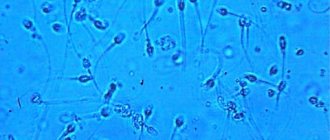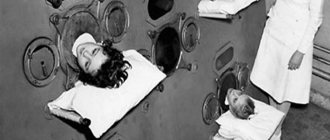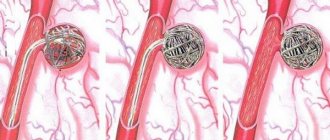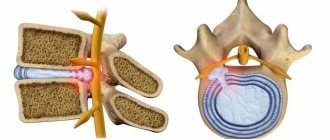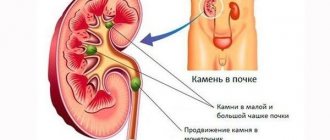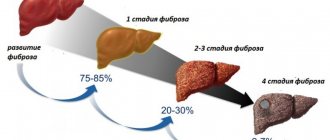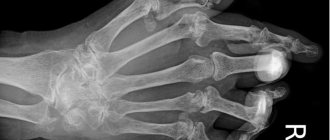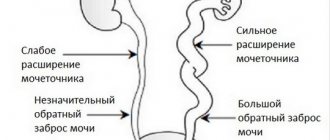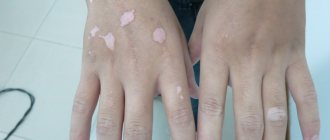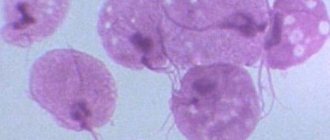Urology
Dmitry Polyanskikh
1956
An active sex life brings not only pleasure, but also problems. They are most often associated with diseases of the genitourinary organs, sometimes viral, and in other cases bacterial. Let’s not dwell on the tired maxim that sexual intercourse without a condom is like riding a roller coaster without seat belts. Urologists daily encounter hundreds of different diseases, their symptoms and consequences. Some diseases develop latently in the genitourinary system, and only after a long time do they manifest recognizable symptoms. Others, on the contrary, “shine” with pathological symptoms from the very beginning, causing significant inconvenience and limiting a person’s capabilities. Urethritis in men is one of these diseases. Inflammation of the walls of the urethra (which, in essence, is urethritis) occurs in the male half, of course, more painfully, but is sometimes observed in women. The topic of today's review is how to treat urethritis in men, and what medications modern pharmacy offers in this case.
Causes of urethritis
The causes of urethritis in men are different, but more often they are infectious, when a person is sick with a sexually transmitted disease that is transmitted during sexual intercourse. But it also happens that an ordinary fungus can cause a similar disease due to non-compliance with personal hygiene rules. Often, E. coli, getting on the penis, and then into the urethra, begins to spread quickly.
A diagnosis of “staphylococcal urethritis” is often made. In this case, the anomaly can be caused by small organisms such as staphylococci. With urolithiasis, urethritis can also occur, since stones that are in the kidney can injure the urinary system when released.
An anomaly in men can occur as a result of the presence of the following factors:
- physical fatigue;
- stressful situation;
- excessive consumption of alcoholic beverages;
- poor nutrition;
- vitamin deficiency;
- various inflammatory processes.
Sometimes urethritis in a man can occur after surgery. In this case, injury to the urethra cannot be ruled out, which is why inflammation occurs. In the resulting wound, a focus of infection may appear, which instantly spreads.
Symptoms and causes
Most often, all the symptoms of the disease actively manifest themselves 2 days after infection. But there are rare cases when the incubation period lasted up to 30 days. It depends on the type of inflammatory agent.
Main symptoms:
- Painful urination, accompanied by pain and burning in the urethra.
- Itching and burning of the head of the penis and foreskin.
- The discharge is purulent in nature and has a yellow-green tint. Sometimes there is an unpleasant odor of discharge and urine.
- Blood and thread-like sediment in the urine.
The causes of urethritis are most often sexually transmitted infections. Irresponsible attitude towards your body and health.
It is not always that a man gets urethritis after sexual intercourse; there are several other equally common methods of infection:
- Non-traditional sexual relations.
- Anal sex.
- Unprotected sex with an infected partner.
- Failure to comply with water procedures.
- Using other people's washcloths and towels.
- Abuse of alcohol, coffee and carbonated drinks.
- Low physical activity and poor nutrition.
- Urethral injury.
- Weak immunity.
All possible pathogens are already present in our bodies in very small quantities. But the immune system successfully controls their activity and numbers. Therefore, they do not bring us any discomfort.
But if the body’s defenses have decreased for some reason, pathogens can be activated and begin to irritate the mucous membrane. Our body is especially sensitive to pathogens transferred from another person.
General symptoms
What should you pay attention to and what symptoms of urethritis may occur in men? Main features:
- One of the first signs indicating that urethritis has appeared is pain when urinating. You need to see a doctor as soon as possible. Only in this case is there a great chance of preventing the spread of the inflammatory process.
- If you continue to ignore the discomfort that occurs when urinating, then the next symptom is purulent discharge. In some cases, you can see the inflammatory process outside, near the opening of the urethra.
- With subsequent exacerbations of the disease, the inflammatory process increasingly affects the mucous membrane of the urethra. Therefore, the signs of urethritis become more pronounced each time. If the disease is not cured by traditional methods, then symptoms of serious complications may appear.
We do not present photos of urethritis in men in the article for ethical reasons.
Classification of urethritis
First of all, such a disease should be divided into the following groups:
- Specific urethritis.
- Nonspecific urethritis.
The first option is caused by infections transmitted through unprotected sexual intercourse, that is, without means of protection - a condom.
It is worth considering that the type of sexual intercourse plays absolutely no role - the infection can enter the body both during traditional sex and during oral or anal sex.
Examples include the following infections:
- herpes virus;
- gonococcus;
- ureaplasma.
In turn, the second type is much less common.
Other types
The causes of nonspecific urethritis can be “attacks” of an allergic, mechanical or thermal nature. The most common causes of infection are listed below:
- Injuries to the genital organ. The so-called traumatic urethritis. We will dwell on it in more detail.
- Allergic reaction. The so-called allergic urethritis.
Also, some urologists prefer to classify specific urethritis as follows:
- Not gonococcal urethritis. This group is characterized by the fact that urethritis occurs due to the active reproduction of various types of bacteria, except gonococci.
- Infectious urethritis.
- Non-infectious urethritis.
The name “infectious urethritis” speaks for itself - infection occurs due to infections.
In principle, some doctors prefer to classify non-infectious urethritis as specific urethritis. But the second type is much more interesting. Non-infectious urethritis develops due to physical damage to the penis. You can give a short name: “traumatic urethritis.”
Damage to the urethra can occur as a result of mechanical, thermal or chemical exposure. Actually, the difference between nonspecific and non-infectious urethritis is mostly arbitrary. Indeed, in one case, the cause is not an infection, and in the second case, the infection occurs not because of bacteria, but because of an injury or an allergic reaction.
In addition to injury, there may be so-called allergic urethritis. Obviously, it occurs due to the body’s reaction to certain medications and food. Quite often, such a disease is not accompanied by additional diseases.
If the patient has allergic urethritis, then you should be sure that it develops additionally, against the background of other diseases. In turn, allergic urethritis extremely rarely appears in isolation. It is also worth mentioning the following types of urethritis, which also should not be overlooked:
- Primary urethritis.
- Secondary urethritis.
The first type is a disease that develops independently of others, independently, directly in the urethra. While secondary urethritis should be understood as a disease that occurs against the background of other pathologies. Inflammation of the urethra occurs in the presence of other affected “objects”. For example, allergic urethritis most often refers to secondary urethritis.
The list of classifications of this disease should be completed by dividing pathologies according to the nature of their course. There are only three:
- Spicy.
- Chronic
- Torpid.
The acute course of urethritis is characterized by vivid manifestations of symptoms. Chronic and torpid are similar in many ways: the disease is practically asymptomatic or the symptoms are mild.
Prevention of urethritis
To minimize the risk of developing urethritis, men should adhere to the following rules:
- avoid injuries to the penis;
- drink enough fluids;
- avoid frequent changes of sexual partners;
- treat any diseases in a timely manner;
- avoid hypothermia.
Yulia Viktorova, obstetrician-gynecologist
22, total, today
( 64 votes, average: 4.70 out of 5)
Enuresis in children and adults: causes and treatment
Ureterocele: what is it, causes, signs, diagnosis, treatment
Related Posts
Diagnosis of urethritis in men
Urethritis is a chronic or acute inflammatory process that occurs in the urethra. The disease can be either infectious or non-infectious. If you feel discomfort, pain, and there is a suspicion of an inflammatory process in the urethra, then doctors prescribe a course of treatment that is aimed at a general “attack” of the disease. The main thing is to visit a urologist who can examine you.
If the diagnosis is nevertheless confirmed and a pathology is detected, the patient will be sent to another doctor - to a venereologist. The patient will be prescribed the following examination:
- do a urine and blood test;
- analyze urine for bacterial cultures and nutrient media;
- ultrasound examinations of the kidneys and organs of the genitourinary system;
- urethroscopy.
If there is pathology, the result of the analysis will indicate a significant excess of leukocytes and the presence of bacteria.
If the analysis shows the presence of fungi, then a diagnosis of “urethritis in candida form” will be made. During the treatment process, a study will be conducted to determine which antibiotic will be more effective in combating this disease. A complete examination will allow doctors to prescribe therapy that will help cure urethritis. Which drug to use so that the treatment brings the most effective result depends on many factors.
After identifying the symptoms, treatment of urethritis in a man is prescribed and proceeds directly to practice.
Diet
You will have to adhere to the rules and norms of nutrition not only during treatment, but also for several months after it. Any foods that irritate the mucous membranes should be completely excluded from the diet. These are fried foods, canned food, pickled and smoked foods.
A prerequisite is to limit salt intake.
It is important for the patient to drink a lot (water, decoctions, fruit drinks, compotes) and stop bad habits. Alcohol is strictly prohibited in the treatment of urethritis.
Treatment of urethritis (especially chronic) can be lengthy, and incorrectly selected therapy can lead to complications and sad consequences. Therefore, you should not start the course of the disease, or even better, prevent its occurrence at all, always using contraception and taking a responsible attitude towards your own health.
For information on the symptoms and treatment of urethritis in men, watch the video:
Useful articles on the topic:
Spermogram: preparation for delivery and interpretation of the analysis Treatment of chlamydia in men Trichomoniasis in men Symptoms of gonorrhea in men
This article has been verified by a current qualified physician, Inna Zhikhoreva, and can be considered a reliable source of information for site users.
Rate how helpful this article was
5 Voted by 1 person, average rating 5
Did you like the article? Save it to your wall so you don’t lose it!
Tablets for the treatment of urethritis in men
The therapeutic effect is determined by the attending physician - a urologist. He prescribes a group of medications with the aim of comprehensively influencing the cause of the pathology:
- Broad-spectrum antibiotics are used to treat gonorrheal, trichomonas, viral, chlamydial, and tuberculosis forms of the disease. These drugs include Ceftriaxone and Tetracycline. Antibiotics for urethritis in men are produced in the form of a powder suspension for the preparation of intramuscular injections. Drugs such as Azithromycin and Erythromecin are used strictly under the supervision of a doctor - 1 mg per day.
- Antifungal drugs for the treatment of urethritis in men. Prescribed when complications occur for the treatment of candidal urethritis: Fluconazole, Pimafucin, Levorin. Tablet forms of biologically active components that can effectively fight the pathogens of thrush, gonorrhea and other bacterial (fungal) agents. Their use is strictly defined by the instructions and is possible in combination with other antiviral medications.
- Treatment of allergic, inflammatory urethritis is allowed by taking herbal preparations. For this purpose, the certified drug “Canephron” was released. It has a diuretic, antispasmodic, antimicrobial, antiviral, and anti-inflammatory effect. Available in the form of an oral solution and tablets. It is worth paying attention to the fact that such a drug contains ethanol, so its use for the treatment of children or in the presence of complex allergic, autoimmune, cardiovascular, and gastrointestinal diseases is strictly prohibited.
- Homeopathic remedies with antibiotic activity. A group of medicines consisting entirely of natural ingredients. They help get rid of inflammation, restore genitourinary function, actively fight fungal, viral, infectious agents and have a diuretic effect: Argentum Nitricum, Cantharis, Copaiva, Medorrhinum, Sulfur.
- Diuretics. The process of getting rid of harmful bacteria involves removing them naturally and restoring kidney function. In order to reduce the load on the body and reproductive system, drugs that increase the urge to empty the bladder are prescribed: “Canephron-N”, “Furosemide”, “Bumetanide”, “Indapamide”, “Torasemide”.
- Medicines to combat Koch's bacillus (tuberculosis).
The tuberculous form of urethritis must be treated strictly in a hospital, using specialized medications:
- Fluoroquinolones. A group of tablet drugs that fight the causative agent of urethritis, have a general anti-inflammatory effect and reduce the likelihood of complications. These are Pefloxacin, Ofloxacin, Levofloxacin, Abaktal.
- Coelofasporins. They stabilize cellular metabolism, help the body develop immunity against Koch’s bacillus, normalize genitourinary function, restore metabolism and natural blood flow to the pelvic organs - “Cefazolin”, “Cefritriaxone”.
- Diuretic homeopathic preparations.
- Antihistamines.
Treatment
Many men who started proper treatment in time completely got rid of the disease.
During treatment, the doctor bases his opinion on the results of an analysis to identify the causative agent of the disease. Several groups of medications are prescribed. It is recommended to give up junk food and completely avoid alcohol and sexual contact during treatment.
The basis of therapy is:
- Antibiotics. The most effective tablets for urethritis caused by gonorrhea and chlamydia are Erythromycin, Tetracycline, Gentamicin and Azithromycin. Mycoplasma and ureaplasma are treated with Doxycycline or Tetracycline. Against Trichomonas infection, the drug Azithromycin, Metronidazole. Norfloxacin, Lomadey and Enoxacin tablets are used against opportunistic bacteria. They have an effect against E. coli, staphylococci, Escherechia coli, etc. all antibiotics are taken under the strict supervision of the attending physician, as they can cause serious side effects and have a list of contraindications. Some of them can cause vomiting and dizziness. This is due to poor tolerability of the drug.
- Antimicrobial drugs using the example of Cefixime and its analogues (Ceforal, Fixim, Loprax), Furamag, Canephron and Biseptol.
- Immunostimulating drugs. The most prescribed are Cycloferon and Phlogenzyme.
- Antiviral drugs against the viral nature of the disease (Acyclovir, Gerpevir). Antibiotics for this etiology will only aggravate the situation and will not help.
- Antihistamine tablets. Prescribed for allergic causes of allergies or intolerance to antibiotics (Suprastin, Cetirizine).
To all of the above, you need to add rinsing the urethra with an antiseptic, mainly Miramistin, and prescribing sitz baths from herbal infusions.
The use of diuretic fruit drinks and infusions is recommended; the most common is lingonberry or cranberry juice.
To maintain immunity, you need to take a course of multivitamins and follow a diet. Stick to a healthy diet.
Most often, the doctor prescribes an antibiotic that has a wide spectrum of action in order to cover as many pathogens as possible and not use additional drugs.
If you seek help on time and do not refuse to take pills on time, then urethritis will be easily cured.
The approximate amount of time spent on treating the disease ranges from 2 weeks to 1 month. After a course of medications, you will need to be tested again to rule out recurrence of the disease.
Traditional medicine for urethritis
Treatment using traditional methods has been popular at all times. Modern medicine also does not deny the positive effects of herbal remedies on the human body. However, their uncontrolled use is unacceptable, especially when there is a tendency to cause allergic reactions.
Oral medicinal preparations for the treatment of urethritis in men at home:
- Parsley leaves are a cure for urethritis in men. They have a general antispasmodic effect. Prevents a decrease in sexual activity. They must be washed, crushed and added to cold water in the ratio: 1 teaspoon per 0.5 liters. In one night, the drug should infuse and be completely ready for use.
- Herbal tea from black currant leaves. Fresh blackcurrant leaves are added to regular tea or brewed in a teapot until a dark, rich infusion is obtained. This infusion is drunk in the morning, after a hearty breakfast, half a glass.
- Cornflower flowers (pharmacy collection). A pharmaceutical collection of cornflower flowers is an excellent remedy for the treatment of many inflammatory diseases of the genitourinary system. According to the instructions indicated on the package, add 250 ml of hot water to a tablespoon of the dry mixture and leave for several hours until a strong herbal decoction is obtained. After this, the drink should be filtered and cooled to an acceptable temperature for drinking. The dosage is exactly half a glass in the morning and evening.
- Ready-made herbal mixtures from horsetail, rose hips, juniper, and elderberry flowers can be found in health food stores or at self-service collection points. To prepare a drinking infusion, you need hot water - 0.5 liters and 250 grams of collection. The starting components are mixed and infused under the lid for 30 minutes. After this, filter the broth and drink half a glass.
- Juice mixture. Squeeze 50 ml of juice from viburnum, carrots, radishes, celery, and beets. Make a cocktail out of them and drink it on an empty stomach in the morning and evening. This drink effectively fights inflammation and itching, has a general tonic effect on the body, increases libido, and is a diuretic and antiseptic.
Treatment of chronic urethritis
To cure the disease in men and women there is no need to go to the hospital. All procedures and medications are taken on an outpatient basis. In case of an infectious pathogen, it is necessary to use antibacterial drugs (in tablets or in injection form) and anti-inflammatory drugs. To strengthen the body, physiotherapy is prescribed. Chronic urethritis is more difficult to resolve and may require multiple courses of therapy.
Specifics of the process in men
Male chronic urethritis is much more difficult to treat due to the longer and narrower urethra. An army of pathogenic microorganisms develops in it at lightning speed; they infect the entire mucous membrane.
Treatment of chronic urethritis in men involves taking the following medications:
- Broad-spectrum antibiotics (Ceftriaxone, Ofloxacin, Doxycycline, Acyclovir). After identifying the group of bacteria that provoked the disease, it is possible to replace it with drugs that attack a specific pathogen.
- Anti-inflammatory drugs (Ibuprofen, Indomethacin). Necessary to eliminate the inflammatory process and prevent its development.
- Antiseptic solutions (“Miramistin”, “Chlorhexidine”). It is recommended to do douching and baths in water to which the product has been added.
- Antispasmodics (“No-shpa”, “Papaverine”). Tablets are prescribed for severe pain.
- Antihistamines (Loratadine, Suprastin, Diazolin). Necessary for allergies to hygiene products or linen. Helps reduce hyperemia and rashes on the tissues of the genital organs.
- Pre- and probiotics, enzymes (“Bifiform”, “Creon”, “Yoghurt”). When taking antibiotics, gastrointestinal dysfunction may develop, so it is recommended to take drugs with beneficial bacteria.
- Homeopathy (“Tree of Life”, “Thuja occidentalis”, “Sepia”, “Kopaiva”). Herbal medicine is prescribed when pus, blood, and mucus are detected in urine and semen.
If prostate damage is detected, the man is prescribed paraffin-based anti-inflammatory suppositories. Depending on the cause of inflammation, electrophoresis, heating, and massage of the prostate gland are performed in the physical room.
Therapeutic course for women
Treatment of chronic urethritis in women is carried out according to the same scheme as in men. It is mandatory to take antibiotics and anti-inflammatory drugs. To improve immunity, vitamin complexes are prescribed. If the cause of the pathology is an STD, it is advisable to use vaginal suppositories. For candidiasis type of disease, it is necessary to take a course of antifungal agents.
Depending on the type of pathogen, the following antibiotics are prescribed:
- Chlamydial: Leofloxacin, Amoxiclav, Flemoxin.
- Myoplasmic: “Tetracycline”, “Doxycycline”.
- Trichomonas: “Cidipol”, “Efloran”, “Flagyl”.
- Gonorrheal: Ceftriaxone, Rifampicin.
During therapy, be sure to adhere to a diet: exclude fatty, smoked, fried foods, and alcohol. You should ask your doctor to recommend a vitamin complex. If you want to use traditional medicine, you should notify your gynecologist. You can treat urethritis at home using baths of medicinal herbs and paraffin suppositories.
Prevention
Prevention of urethritis does not include impossible and very difficult actions; everyone is able to carry them out:
- Do not neglect the rules of personal hygiene. Especially after a difficult day, if you can’t wait to just come home and go to bed. It is imperative to change your underwear and wash yourself.
- It is necessary to wash from top to bottom so as not to introduce opportunistic bacteria from the anus into the urethra.
- Be sure to use barrier contraceptives during sexual intercourse. After sex, you should urinate; the flow of urine will wash away most of the pathogenic microorganisms that entered the urethra with mucus or lubricant.
- Do not proceed to vaginal sex after anal sex. It would be more correct to carry out water procedures or change the condom. Often this is directly considered the main cause of the disease, which is difficult to treat.
- Follow your diet. Try to eat less too spicy, salty and fatty foods.
- Get checked regularly by a urologist. Numerous diseases are detected directly during a routine examination by a professional at an early stage.
Urethritis and its prevention are inseparable things. Especially if the disease has entered a chronic stage. Therefore, it is so important to be more attentive to your own health.

